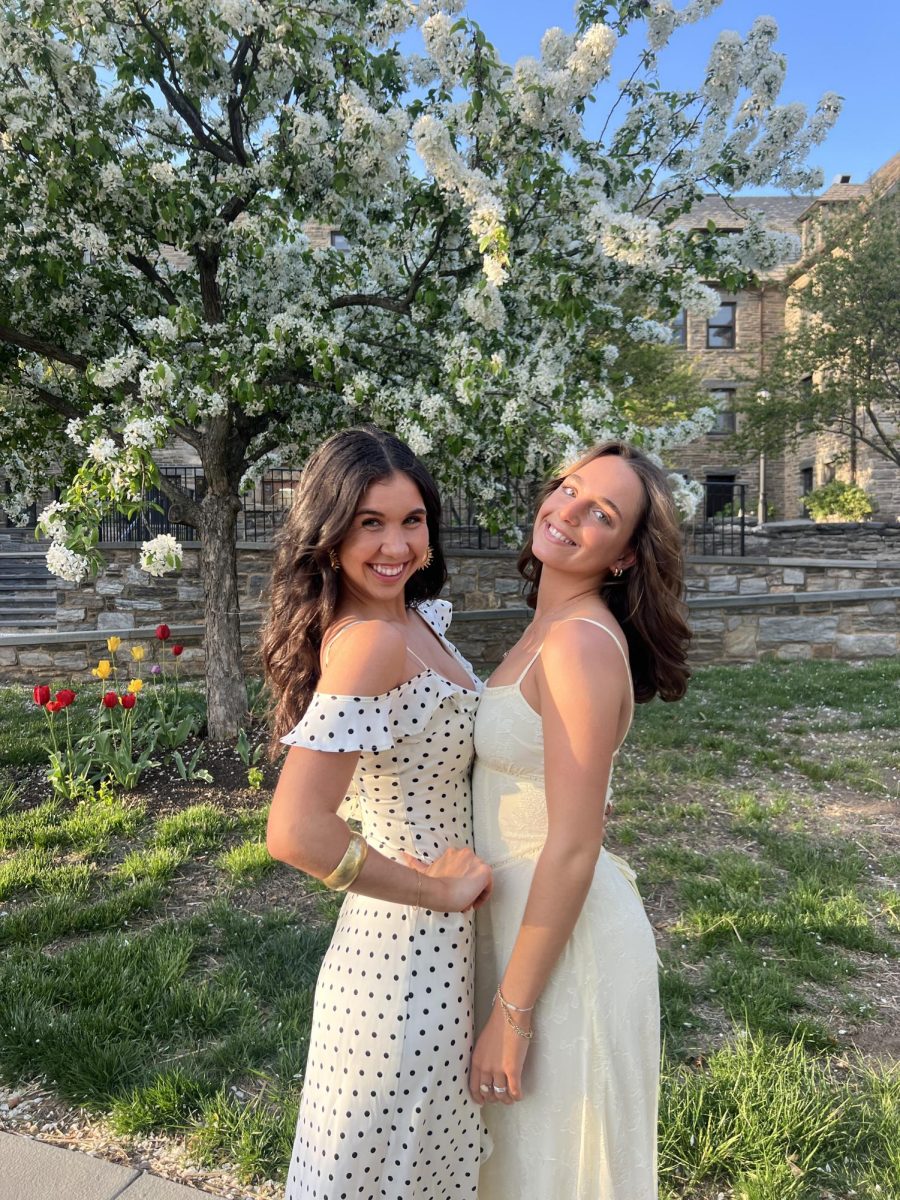Nothing brings Villanova students together like free food, and this year’s Food Matters Week was no exception. It served up slices of “Big Fat Chocolate Peanut Butter Pie,” while offering a fresh look at food and identity.
In her talk, Food Matters: Queer Food, Dr. Megan Elias, an associate professor of gastronomy at Boston University, introduced students to the idea of queer food. She explained that food can be more than just a meal. It can be a statement of self and community. Elias shared how even small food choices can support or challenge stereotypes. For example, steak is often seen as masculine, while fruity cocktails are viewed as feminine. Drawing from her recent Queer Food Conference, she showed Villanova students how queer food traditions can break the mold and create space for everyone.
Students left with full stomachs and a new perspective on food as a celebration of diversity and belonging. They were inspired by insights from Cook Out! The Queer Food Conference Cookbook, which showcases recipes and stories from queer culture. The speaker also shared a video by Antoni Porowski that discussed food as a love language.
Elias’s talk challenged the common assumptions about who food is for and how it reflects cultural norms. She traced the significance of queer figures in the culinary world, such as James Beard, and talked about early queer cookbooks that went against traditional roles. Elias encouraged the audience to rethink cooking and see its connections to identity, inclusion and expression.
The idea of “Queer Food” began for Elias in her Food and Gender class. In that class, they discussed traditional roles, like how women are often expected to cook, even when ordering takeout. She pointed out that many cookbooks, like The Delineator Cookbook, were made for straight families. This raises an important question for the queer community: are traditional cookbooks designed in ways that exclude queer people?
Beard was a key figure in American cooking and an inspiration for Elias’s research. A closeted gay man for most of his life, he came out in 1981 during a difficult time in LGBTQ+ history. That same year, he released a new cookbook. Elias used this example to show how Beard encouraged food freedom, comparing it to the personal freedom he found in coming out. Beard believed that cooking for someone is less about the dish itself and more about the love and intention behind it. This message is very inclusive and resonates with the queer community.
Elias’s recent conference on queer food at Boston University received mixed reactions. Some people were excited about the topic, while others questioned why queerness should be connected to food. Elias reflected on these responses. She highlighted the ongoing cultural tensions in discussions about queer identity and everyday experiences like cooking.
Elias highlighted The Gay Cookbook (1965), the first queer cookbook published at a time when few men were writing cookbooks. The few who did often made misogynistic comments, showing men as artistic chefs while reducing women to simple cooks. In contrast, queer cookbooks have developed to include humor and inside jokes, creating a shared language for the LGBTQ+ community while playfully excluding straight audiences.
The discussion also covered other scholarly approaches to queer food, including how food memories shape identity, the heteronormative nature of nutrition advice and how individuals undergoing gender transition may change their diets.
Throughout her talk, Elias emphasized that cooking and sharing food with friends and family is a powerful love language. She pointed out that when people exclude certain identities, that connection is weakened. Despite dedicating her entire career to learning, teaching and discussing food, Elias humorously admitted that she does not consider herself a good cook.







